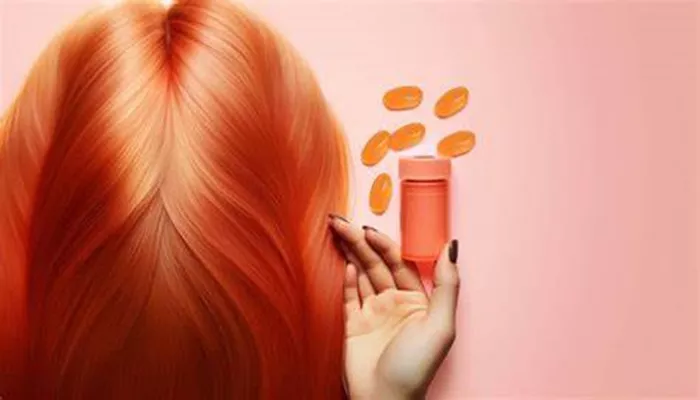Hair loss is a common concern affecting millions of people worldwide, leading many to seek effective solutions to promote hair growth and reduce shedding. Among the various vitamins and supplements touted for hair health, biotin stands out as one of the most popular choices. But how much biotin should you take daily to combat hair loss? This article explores the science behind biotin, its benefits for hair, recommended dosages, potential side effects, and other factors to consider for optimal hair health.
Understanding Biotin and Its Connection to Hair Health
Biotin, also known as vitamin B7 or vitamin H, is a water-soluble vitamin that plays a crucial role in several metabolic processes in the body. It acts as a coenzyme in the synthesis of fatty acids, amino acids, and glucose, all of which are essential for maintaining healthy hair, skin, and nails.
One of the primary reasons biotin is associated with hair growth is its role in keratin production. Keratin is a structural protein that makes up the majority of hair strands. A deficiency in biotin can lead to weakened hair structure, increased brittleness, and even hair loss. While biotin deficiency is rare, certain factors such as pregnancy, prolonged antibiotic use, or genetic disorders can lead to lower biotin levels, making supplementation beneficial in such cases.
How Much Biotin Should You Take for Hair Loss?
The recommended daily intake of biotin varies depending on age, health status, and specific needs. For the general population, the adequate intake levels set by the National Institutes of Health (NIH) are as follows:
- Infants (0-12 months): 5-6 mcg
- Children (1-18 years): 8-25 mcg
- Adults (19+ years): 30 mcg
- Pregnant women: 30 mcg
- Breastfeeding women: 35 mcg
However, when it comes to addressing hair loss, many supplements on the market contain significantly higher doses—ranging from 1,000 mcg (1 mg) to 10,000 mcg (10 mg) per day. Some hair growth formulations even go up to 20,000 mcg (20 mg) daily.
Is More Biotin Better for Hair Growth?
While high doses of biotin are often marketed for hair, skin, and nail benefits, scientific evidence supporting mega-dosing is limited. Most studies on biotin and hair loss have focused on individuals with a diagnosed biotin deficiency, where supplementation led to noticeable improvements in hair thickness and reduced shedding.
For those without a deficiency, excessive biotin intake may not necessarily accelerate hair growth. The body excretes excess water-soluble vitamins like biotin through urine, meaning that taking extremely high doses may not provide additional benefits. That said, doses between 2,500 mcg to 5,000 mcg (2.5-5 mg) per day are commonly recommended for individuals experiencing hair thinning, as they are generally safe and may support hair health over time.
Potential Side Effects and Interactions
Biotin is considered safe, even at high doses, with very few reported side effects. However, some individuals may experience mild issues such as:
- Acne breakouts (due to increased keratin production)
- Digestive discomfort (nausea, cramping)
- Allergic reactions (rare but possible)
A more significant concern is biotin’s interference with certain lab tests, particularly thyroid and hormone tests. High biotin intake can lead to falsely elevated or decreased results, potentially affecting medical diagnoses. If you are undergoing blood work, it’s advisable to stop biotin supplementation for at least 48-72 hours beforehand.
Other Nutrients That Support Hair Growth
While biotin can be beneficial, hair health depends on a combination of nutrients. Incorporating the following vitamins and minerals into your diet or supplement regimen may enhance results:
- Vitamin D: Low levels are linked to alopecia (hair loss).
- Iron: Deficiency can lead to telogen effluvium (excessive shedding).
- Zinc: Supports hair follicle function and repair.
- Omega-3 fatty acids: Promote scalp health and reduce inflammation.
- Collagen: Provides amino acids essential for keratin production.
A balanced diet rich in protein, healthy fats, and antioxidants is equally important for maintaining strong, resilient hair.
When to See a Doctor for Hair Loss
If you’re experiencing significant hair loss despite taking biotin or other supplements, it may be time to consult a healthcare provider. Underlying conditions such as thyroid disorders, hormonal imbalances, or autoimmune diseases (like alopecia areata) could be contributing factors. A doctor can perform blood tests to check for deficiencies or other medical issues and recommend targeted treatments such as minoxidil, finasteride, or platelet-rich plasma (PRP) therapy.
Conclusion
Biotin can be a helpful supplement for those dealing with hair thinning or shedding, especially if a deficiency is present. While the standard recommended daily intake is 30 mcg for adults, doses between 2,500-5,000 mcg per day are commonly used for hair loss with minimal risk of side effects. However, it’s important to manage expectations—biotin is not a miracle cure, and results may take several months to become noticeable.
For best outcomes, combine biotin supplementation with a nutrient-rich diet, proper hair care practices, and stress management. If hair loss persists, seeking medical advice ensures that any underlying health issues are properly addressed.
By understanding the role of biotin and adopting a holistic approach to hair health, you can make informed decisions to support stronger, fuller hair over time.
Related Topics:
- How to Choose a PRP Treatment?
- What Helps My Hair from Falling Out?
- When Does Hair Transplant Hair Fall Out?


